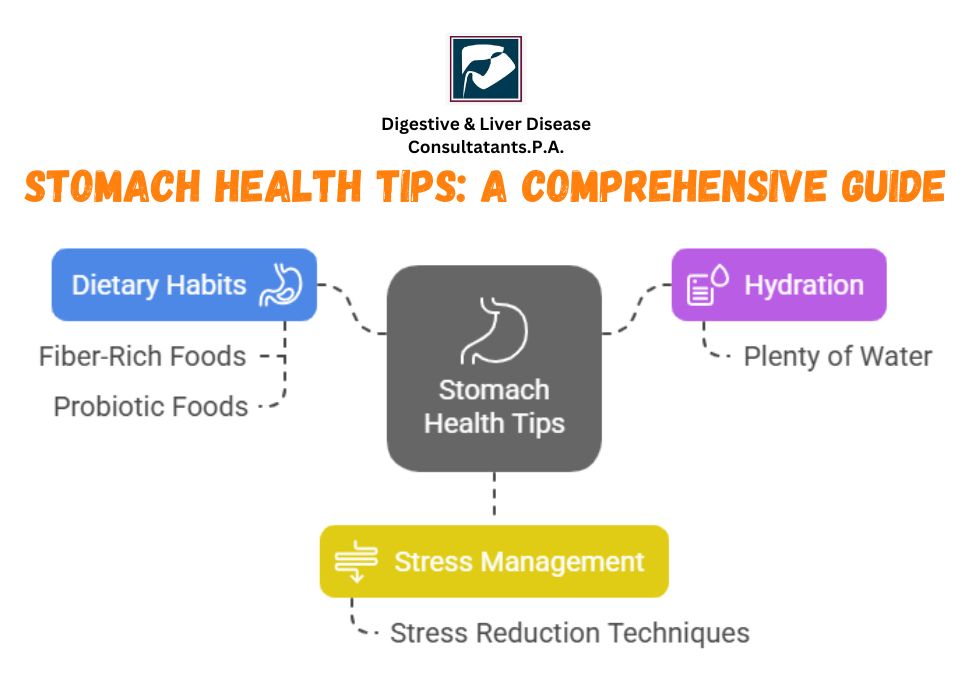When it comes to feeling your best, having a healthy stomach plays a big role. Your stomach is responsible for breaking down the food you eat and helping your body absorb important nutrients. If your stomach isn’t happy, you may experience uncomfortable symptoms like bloating, indigestion, gas, or even more serious digestive problems.
The good news? Choosing the right foods can help your stomach stay strong and healthy. In this blog, we’ll go over some of the best foods you can add to your diet to support a happy and balanced digestive system.
Why Stomach Health Matters
Your digestive system does more than just process food. It’s connected to your immune system, your energy levels, and even your mood. When your stomach is healthy, it helps your body fight off illness, absorb vitamins and minerals, and remove waste properly. A healthy stomach can even lower your risk of chronic conditions like heart disease, diabetes, and certain cancers.
On the other hand, poor stomach health can lead to issues like:
- Acid reflux
- Irritable bowel syndrome (IBS)
- Constipation
- Food intolerances
- Stomach ulcers
Taking care of your digestive system with the right foods can make a real difference in your overall well-being.

Top Foods for a Healthy Stomach
1. Yogurt
Yogurt is packed with probiotics, which are friendly bacteria that help balance your gut. Probiotics improve digestion and help prevent issues like bloating, diarrhea, and constipation. Look for yogurts that say “live and active cultures” on the label, and try to pick ones with little or no added sugar.
2. Bananas
Bananas are gentle on the stomach and rich in fiber, especially pectin, which helps with digestion. They are also a great source of potassium, which can help balance stomach acid and keep your gut lining healthy.
3. Oats
A warm bowl of oatmeal is not only comforting but also full of soluble fiber, which helps keep your digestive system moving smoothly. Oats can help reduce constipation and promote the growth of good bacteria in your gut.
4. Ginger
Ginger has been used for centuries to soothe upset stomachs. It can help relieve nausea, support digestion, and even reduce inflammation in the gut. Add fresh ginger to teas, smoothies, or stir-fries for a natural digestive boost.
5. Leafy Greens
Spinach, kale, and other leafy greens are loaded with fiber, vitamins, and minerals that help your stomach and intestines stay healthy. They also feed good gut bacteria and can help protect your stomach lining from damage.
6. Bone Broth
Bone broth is rich in gelatin and amino acids that help heal the gut lining. It’s easy to digest and can be very soothing if you're recovering from digestive problems. Drinking a warm cup of bone broth is not only comforting but also deeply nourishing for your stomach.
7. Papaya
Papaya contains an enzyme called papain that helps break down proteins and ease digestion. Eating papaya can reduce symptoms like bloating and gas, making it an excellent choice for people with sensitive stomachs.
8. Whole Grains
Brown rice, quinoa, and whole wheat bread are all good sources of fiber, which keeps your digestive system working well. Fiber adds bulk to your stool, making it easier to pass and reducing the risk of constipation.
9. Fermented Foods
Besides yogurt, other fermented foods like sauerkraut, kimchi, kefir, and miso are packed with probiotics. These foods help maintain a healthy balance of bacteria in your gut, supporting overall stomach health.
10. Apples
An apple a day really might keep digestive problems away! Apples are rich in fiber and a type of fiber called pectin, which acts as a natural prebiotic to feed your gut's good bacteria.
Foods to Limit for Better Stomach Health
While adding stomach-friendly foods is important, it's equally helpful to limit certain foods that can irritate your gut, such as:
- Highly processed foods (like chips and fast food)
- Sugary drinks (like sodas and sweetened juices)
- Fried and greasy foods
- Excessive caffeine
- Alcohol
Eating these foods too often can disrupt your gut bacteria and inflame your stomach lining, leading to digestive issues over time.
Small Habits That Support a Healthy Stomach
Along with eating well, a few simple habits can make a big difference in your digestion:
- Stay hydrated by drinking plenty of water.
- Chew your food slowly and thoroughly to aid digestion.
- Eat smaller, more frequent meals if big meals cause discomfort.
- Manage stress, as anxiety can upset your stomach.
- Get regular exercise to keep your digestive system active.
Making these small changes along with a gut-friendly diet can greatly improve your digestive health over time.
About Digestive & Liver Disease Consultants, P.A.
At Digestive & Liver Disease Consultants, P.A., we are dedicated to helping patients achieve better digestive health through compassionate care and expert treatment. Our experienced gastroenterologists provide a full range of services for digestive and liver disorders, from routine screenings to complex treatments. Whether you’re dealing with a simple upset stomach or a chronic digestive condition, our team is here to help you feel better and live healthier.
We believe that good nutrition is the foundation of digestive health, and we’re committed to helping you make choices that support your well-being for life.
Conclusion
Your stomach health has a big impact on how you feel every day. By adding foods like yogurt, bananas, oats, leafy greens, and fermented foods to your diet, and making small lifestyle changes, you can support a strong, balanced digestive system.
If you’re struggling with frequent digestive issues like bloating, heartburn, or stomach pain, don’t ignore the signs.
Reach out to the experts at Digestive & Liver Disease Consultants, P.A., today to schedule an appointment.






